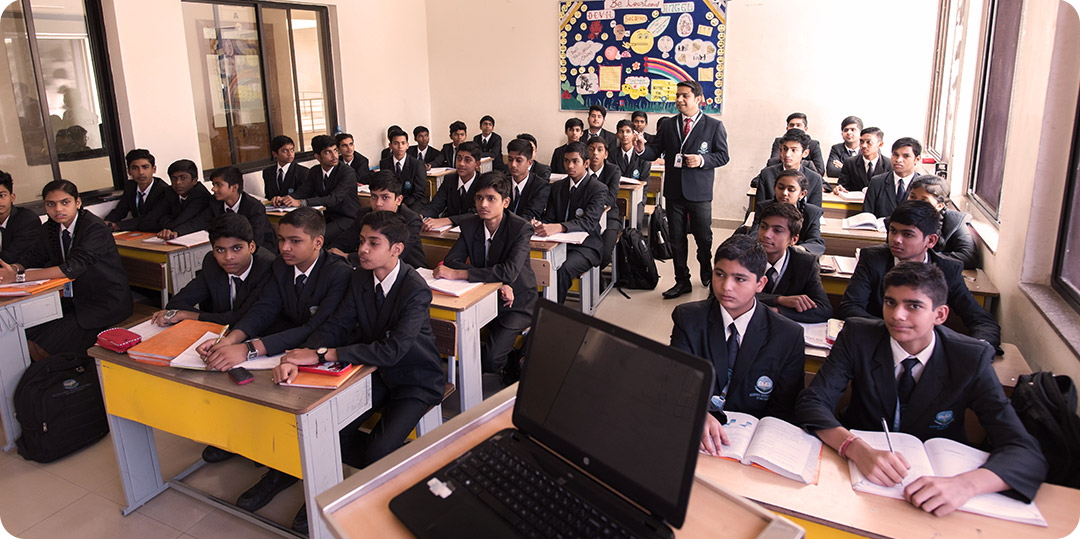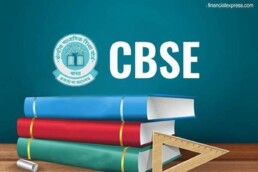Worldwide, the academic year 2021–22 has been highly unpredictable. Everything was put on hold by the pandemic, including education, which has been suspended since March. While several efforts were made to support online learning, still several fundamental issues emerged, such as the lack of an appropriate network or internet access making it difficult for most students to keep up with their homework. The CBSE board decided to reduce the course by 30% just for this year. In addition, the CBSE curriculum underwent several adjustments in 2021–22.
What is the curriculum for the Central Board of Secondary Education?
The Central Government of India manages the CBSE, a national curriculum that is standardised and taught in more than 24 nations globally. The CBSE board currently has more than 17000 schools affiliated with it globally, of which the majority of schools are in India. The curriculum adheres to the NCERT curriculum set forth by the National Council of Educational Research and Training for
private and public schools (NCERT). The schools associated with the CBSE board employ a comprehensive method of education including all knowledge domains that might be required for students at various levels.
Characteristics of the Curriculum
While most curriculum aims to provide students with the excellent education possible, with its unique approach. The following are some key components of the CBSE curriculum:
- The CBSE curriculum is a highly structured and regulated curriculum designed to provide learners with a holistic education. In all classes, the same NCERT textbooks are prescribed.
- Till the eighth class, no student can fail.
- The board eliminated the tests for the 10th class but they have since been reinstated.
- Board exams are required for students in the 12th grade.
- At the secondary school level, instruction is concentrated on seven key topics and schools adhere to the NCERT-recommended curriculum.
- Aspirants to careers in engineering and medicine prefer the CBSE curriculum to state or international Education boards.
How Academic World School FOLLOWS THE NEW AMENDMENTS IN CBSE curriculum –
- The Academic World School creates a welcoming environment encouraging strong relationships among staff, students, and families. Building trust among students and teachers also gives them confidence.
- Implements meaningful, engaging & instructional practices that help students develop their various skills & ability to manage their learning.
- The school creates habits, skills, and mindsets that help students improve their social, emotional, and academic competence.
- It also creates habits, skills, and mindsets that help students improve their social, emotional, and academic competence.
Education provides stability in life which can never be taken away. Being well-educated and holding a college degree increases one’s chances of acquiring a better job opening various opportunities. When it comes to being self-sufficient, the value of education itself increases.
Education is something that belongs entirely to ourselves. By doing so, you can become financially independent.

Academic World School
Academic World School is inventive and serves a precise plan to provide education. Their school practices meet the emerging needs of students in Chhattisgarh and other Indian states. Their vision has a challenging yet clear goal which states to transform students and prepare them to meet and overcome higher challenges in their lives, benefiting themselves and the society in which they live.
To provide students with knowledge and skills through engaged learning; to encourage them to pursue tertiary education of their choice, and to make them custodians of their physical, social, emotional, and spiritual well-being. Students are driven to strive for a smooth transition into adulthood, become valuable members of their communities, and promote tolerance, world peace, and serenity.
The most recent curriculum modifications made in 2021–2022
A smaller syllabus in CBSE emphasises learning objectives that suit the learning needs of the learners. The curriculum was changed and rationalised as much as possible to reach the desired learning level while preserving the fundamental ideas. The reduction in the syllabus by 30% only applies to classes 9 through 12. Schools might use the alternate academic calendar and learning objectives set forth by NCERT for elementary students.
The following literature sections in English optional are eliminated:
- Future and One Cent (Short Story)
- Blood (Poetry)
- Argumentative Indian Science Fiction (Non-fiction)
- Breaking Images (Drama)
Uniform evaluation –
According to the CCE assessment pattern used by CBSE, teachers evaluated students continuously throughout the year for the remaining 40% of the assessment based on how students fared on pen and paper tests.
The weightage of pen and paper assessments will rise to 90% under the proposed unified assessment design. In these new format classes, students in grades 6 through 8 will use a uniform assessment system that consists of two semesters with half-yearly and annual exams. Formative evaluations will be used to evaluate students throughout each semester, and a summative assessment will occur at the end.
Students in these subjects will take yearly exams based on the second semester’s syllabus and a portion of the first semester’s material.
The class six annual exams will cover 10% of the half-yearly course.
Class 7 and 8 will, however, receive 20% and 30%, respectively.
The ninth-grade exam and report cards will resemble those for the tenth-grade students. Upper primary schools will be expected to use the NCERT curriculum.
